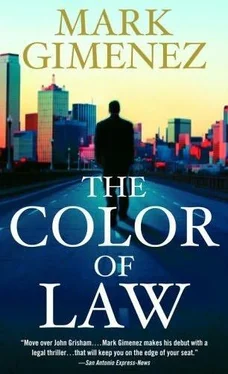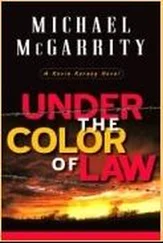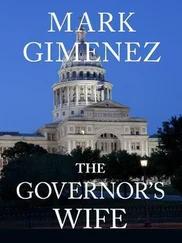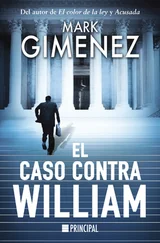Mark Gimenez - The Color of Law
Здесь есть возможность читать онлайн «Mark Gimenez - The Color of Law» весь текст электронной книги совершенно бесплатно (целиком полную версию без сокращений). В некоторых случаях можно слушать аудио, скачать через торрент в формате fb2 и присутствует краткое содержание. Жанр: Криминальный детектив, на английском языке. Описание произведения, (предисловие) а так же отзывы посетителей доступны на портале библиотеки ЛибКат.
- Название:The Color of Law
- Автор:
- Жанр:
- Год:неизвестен
- ISBN:нет данных
- Рейтинг книги:3 / 5. Голосов: 1
-
Избранное:Добавить в избранное
- Отзывы:
-
Ваша оценка:
- 60
- 1
- 2
- 3
- 4
- 5
The Color of Law: краткое содержание, описание и аннотация
Предлагаем к чтению аннотацию, описание, краткое содержание или предисловие (зависит от того, что написал сам автор книги «The Color of Law»). Если вы не нашли необходимую информацию о книге — напишите в комментариях, мы постараемся отыскать её.
The Color of Law — читать онлайн бесплатно полную книгу (весь текст) целиком
Ниже представлен текст книги, разбитый по страницам. Система сохранения места последней прочитанной страницы, позволяет с удобством читать онлайн бесплатно книгу «The Color of Law», без необходимости каждый раз заново искать на чём Вы остановились. Поставьте закладку, и сможете в любой момент перейти на страницу, на которой закончили чтение.
Интервал:
Закладка:
“A. Scott, who are all those people waiting for?” Boo asked.
“Me.”
He pulled the girls close and forged ahead. When they were spotted, the cameras and reporters came rushing forward like the kicking team rushing downfield to tackle number 22 returning the opening kickoff. Scott would rather have faced those foaming-at-the-mouth football players than these crazed reporters wanting a sound bite for the evening news. They stuck microphones in his face and shouted from a foot away:
“Is Shawanda claiming self-defense?”
“Will other women testify that Clark raped them?”
“Are you gonna call the senator to testify?”
To all of which Scott answered, “No comment,” and pushed ahead. But then they went after Pajamae, sticking microphones in her face and shouting at her:
“Do you think your mother killed Clark?”
“Where will you live if she’s convicted?”
“Do you still love your mother?”
Scott got mad. He shoved the microphones and cameras away.
“Leave her alone!”
But Pajamae had stopped dead in her tracks. Her head was tilted up at the last reporter, an odd expression on her face, and she said in the softest voice: “Of course, I love my mama.”
Her words struck the reporters silent. A little black girl had embarrassed the media circus into submission. The crowd parted and allowed Scott and his two little girls free passage into the courthouse.
They got off the elevator on the fifteenth floor and walked down the hall and around the corner to Judge Buford’s courtroom, where Delroy Lund was sitting on a bench, reading the sports pages. They hadn’t seen each other since that day at the Village, but Delroy only glanced up at Scott and then back at the newspaper, without comment or expression. Per his subpoena, Delroy was legally obligated to sit outside the courtroom for the duration of the trial, waiting to be called inside to testify.
Scott pulled the big double doors open and escorted the girls into the courtroom, up the center aisle to the front row, and as he was pointing out where they should sit, he glanced back at the second row and found himself staring at United States Senator Mack McCall and his wife. And they stared back. Scott thought he noticed the senator’s right arm come up slightly, as if he were going to reach over and shake Scott’s hand, a politician’s habit, but the senator pulled back. Scott’s eyes fell on Jean McCall; she looked straight into his eyes and her eyebrows rose slightly, as if asking a silent question, then she recrossed her legs, left over right. The movement drew Scott’s eyes down to her short skirt, and she looked away, but ran her hand down the length of her smooth thigh. Scott was turning his head back to the girls when he noticed Dan Ford. His former senior partner, mentor, and father figure was sitting next to Jean McCall with a grim expression. Dan broke eye contact with Scott and looked down, slowly shaking his head.
Scott got the girls settled in on the jury side of the spectator section. He wanted the jurors to see the defendant’s daughter and think, How could the same person be a loving mother and a cold-blooded murderer?
“Oh, that’s a nice touch.”
Ray Burns’s smart-ass voice. Scott turned to his adversary, but Ray just shook his head and walked to the prosecution table. Bobby and Karen were already seated at the defendant’s table.
“Clark McCall was lying on the floor of his bedroom, writhing in pain after being kneed in the groin, when the defendant, Shawanda Jones, walked over to him, grabbed his hair, yanked him up, stuck the barrel of her. 22-caliber pistol to his forehead, and pulled the trigger, killing him instantly. Then she stole his money and his car. Shawanda Jones murdered Clark McCall, a federal official, during the commission of a robbery. That is what the evidence will show. And that is why I will ask you to return a verdict of guilty and a sentence of death.”
Assistant United States Attorney Ray Burns turned away from the jury, walked from the podium back to the prosecution table, and winked at Scott, knowing that he had just made a very effective opening statement, telling the jury exactly what he would prove and knowing he could back up his words.
“Mr. Fenney,” Judge Buford said.
Scott stood and glanced at the spectator section crowded with gawkers gathered to witness a trial the likes of which Dallas had never seen. At the back of the courtroom were the groupies, old men who came to the courthouse each day like other old men went to the golf course. Next up were several rows of the general public who had lined up outside before daybreak to get a seat. Then came five rows of reporters taking notes and courtroom artists sketching portraits. Then came an assortment of lawyers and state court judges who viewed the trial as continuing legal education. And finally there were Senator McCall and his wife, McCall staring holes in Scott’s skull, Jean just staring, and Dan Ford shaking his head. Directly in front of them, Boo and Pajamae sat like two little prim and proper Highland Park girls, knees together, hands in their laps. He looked at Boo and she smiled and gave him an emphatic thumbs-up. He wished he shared her confidence. He walked over to the podium and faced the jury. He would not dispute the government’s evidence. He would only dispute the government’s conclusions.
“Shawanda Jones is a prostitute and a heroin addict. She’s not present this morning because she’s sick; she’s suffering withdrawal. Judge Buford permitted me to make you aware of her illness so you would not hold her absence against her. If you remember, at jury selection, I asked only one thing from each of you, and that was to give Shawanda a fair shake.”
There was a time, not that long ago, when a black defendant could not get a fair shake in a Southern courtroom; when a complete stranger could walk in off the sidewalk and, without knowing anything about a case, instantly pick out the defendant, the only black person in the courtroom; when a jury of a black defendant’s “peers” would be white men. But the times had changed and so had the law. Scott now looked into the eyes of the black and brown and white men and women sitting in the jury box-the teacher, the mechanic, the nurse, the bartender, and the others-and wondered if they could be fair.
“You hold her life in your hands. Listen carefully. Think for yourself. Be fair.”
Dallas Police Officer Eddie Castille swore to “tell the truth, the whole truth, and nothing but the truth so help me God” and sat in the witness stand. Castille was in his midtwenties, Hispanic, a young cop eager to please, and still under the impression that he could make a difference on the streets of Dallas. He was the prosecution’s first witness. Ray Burns addressed him from the podium.
“Officer Castille, what is your position with the Dallas Police Department?”
“Patrol officer.”
“Were you patrolling the Harry Hines vicinity of Dallas on the afternoon of Sunday, June sixth?”
“Yes, sir.”
“And during that patrol did you come upon an abandoned Mercedes-Benz?”
“Yes, sir.”
“Please tell the jury what you did next.”
“I saw the vehicle parked on a side street and pulled up to it. We don’t generally see cars like that in the Harry Hines area, except at the strip joints. The vehicle was unoccupied, so I ran the plates. Dispatch came back, said it hadn’t been reported stolen, said it was registered to a Mack McCall.”
“As in Senator Mack McCall?”
“Yes, sir, that’s what dispatch said, but I didn’t know who that was.”
That brought light laughter from the courtroom and a self-deprecating shrug from the senator.
“And then what did you do?”
“The registration address was in Highland Park, so the duty sergeant said he would call Highland Park PD and have them go over to the residence.”
Читать дальшеИнтервал:
Закладка:
Похожие книги на «The Color of Law»
Представляем Вашему вниманию похожие книги на «The Color of Law» списком для выбора. Мы отобрали схожую по названию и смыслу литературу в надежде предоставить читателям больше вариантов отыскать новые, интересные, ещё непрочитанные произведения.
Обсуждение, отзывы о книге «The Color of Law» и просто собственные мнения читателей. Оставьте ваши комментарии, напишите, что Вы думаете о произведении, его смысле или главных героях. Укажите что конкретно понравилось, а что нет, и почему Вы так считаете.












